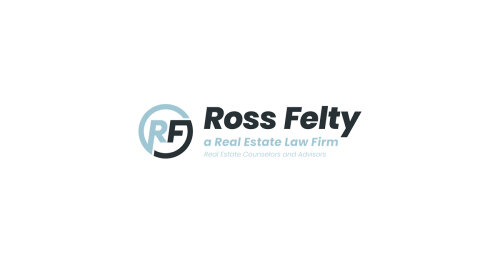Best Business Registration Lawyers in Florida
Share your needs with us, get contacted by law firms.
Free. Takes 2 min.
Or refine your search by selecting a city:
List of the best lawyers in Florida, United States
About Business Registration Law in Florida, United States
Business registration in Florida refers to the process of officially forming and recognizing a business with state and local government agencies. This includes choosing a business structure such as a corporation, limited liability company (LLC), partnership, or sole proprietorship, and submitting the necessary documentation to the Florida Division of Corporations, which is part of the Florida Department of State. Registering a business is a legal requirement that ensures the entity is recognized, can conduct business lawfully, and meets both state and local regulatory obligations.
Why You May Need a Lawyer
While some business owners choose to handle registration independently, there are several scenarios where legal help is advisable:
- Choosing the right business structure, which affects taxes, liability, and operations
- Drafting and reviewing organizational documents like Articles of Incorporation or Organization
- Ensuring compliance with local, state, and federal laws
- Navigating complex ownership agreements among multiple founders
- Understanding industry-specific licensing or zoning regulations
- Resolving disputes during the early stages of formation
- Foreign entities seeking to register to do business in Florida
- Protection of intellectual property, trademarks, or brand identity during formation
Having a lawyer can help business owners avoid costly mistakes and ensure their enterprise is structured and operated in compliance with all regulations.
Local Laws Overview
Florida has its own set of statutes and regulations governing business registration. Some key aspects include:
- All corporations, LLCs, and some partnerships must register with the Florida Division of Corporations
- Sole proprietors may need to register a fictitious name if doing business under a name different from their legal name
- Annual reports must be filed for corporations and LLCs to maintain active status
- Foreign entities must register as a foreign LLC or corporation if they wish to conduct business in Florida
- Every business is responsible for obtaining the required local city or county business tax receipts (often called occupational licenses)
- Some businesses require special permits or licenses depending on the industry
- Specific state taxes, such as sales tax and reemployment tax, may apply depending on the business’s activity
Frequently Asked Questions
What types of business structures can I register in Florida?
Common business structures include corporations, limited liability companies (LLCs), general partnerships, limited partnerships, and sole proprietorships. Each has different legal and tax implications.
Do I need to register my business name in Florida?
Yes, if you are operating under a name other than your legal personal name or your business’s legal entity name, you must register a “fictitious name” (also known as a DBA or “doing business as”).
How do I register my business with the state?
You must file the appropriate forms with the Florida Division of Corporations, which can usually be done online, by mail, or in person, depending on the entity type.
What are my ongoing responsibilities after registering my business?
Most businesses must file annual reports and pay appropriate state fees to remain in good standing. You may also have tax obligations and local licensing requirements.
Do I need a federal EIN to register my business?
An Employer Identification Number (EIN) from the IRS is required for most businesses, especially if you have employees, operate as a corporation or partnership, or plan to open a business bank account.
Do I need a business license or permit?
Most businesses need to obtain a business tax receipt from their city or county. Some industries require state or federal licenses or permits as well.
How much does it cost to register a business in Florida?
The cost depends on the business structure. For example, filing Articles of Incorporation for a corporation or Articles of Organization for an LLC usually has a state filing fee. Fictitious name registrations and annual reports also have separate fees.
Can I register my business online?
Yes, most Florida business registrations can be completed online through the Florida Division of Corporations portal.
Can a non-US citizen register a business in Florida?
Yes, non-US citizens can form and own businesses in Florida, although some industries have specific requirements or restrictions. Non-citizens often benefit from legal counsel to navigate immigration and tax implications.
What happens if I do not register my business?
Failing to register can result in legal penalties, inability to enforce contracts, personal liability, and fines. It also affects your ability to open business bank accounts or obtain financing.
Additional Resources
The following resources can provide valuable guidance and official information about business registration in Florida:
- Florida Division of Corporations - The official source for business registration, forms, and records
- Florida Department of Revenue - For information on state tax registrations and requirements
- Small Business Development Center (SBDC) Network - Offers free counseling and workshops
- Local Chambers of Commerce - Provide support, networking, and guidance for business owners
- United States Small Business Administration (SBA) - Offers federal guidance and resources for starting and managing a business
Next Steps
If you are considering registering a business in Florida and need legal assistance, start by outlining your business goals, desired structure, and potential partners. It is helpful to gather any existing agreements or documentation you may already have. Then, consult with a qualified business attorney who can advise on the best legal structure, ensure all requisite filings are completed correctly, and help you comply with ongoing requirements. Many attorneys offer initial consultations to discuss your needs and provide a roadmap for next steps. Engaging a professional not only helps you avoid costly mistakes but also sets your business on a solid legal foundation for future growth.
Lawzana helps you find the best lawyers and law firms in Florida through a curated and pre-screened list of qualified legal professionals. Our platform offers rankings and detailed profiles of attorneys and law firms, allowing you to compare based on practice areas, including Business Registration, experience, and client feedback.
Each profile includes a description of the firm's areas of practice, client reviews, team members and partners, year of establishment, spoken languages, office locations, contact information, social media presence, and any published articles or resources. Most firms on our platform speak English and are experienced in both local and international legal matters.
Get a quote from top-rated law firms in Florida, United States — quickly, securely, and without unnecessary hassle.
Disclaimer:
The information provided on this page is for general informational purposes only and does not constitute legal advice. While we strive to ensure the accuracy and relevance of the content, legal information may change over time, and interpretations of the law can vary. You should always consult with a qualified legal professional for advice specific to your situation.
We disclaim all liability for actions taken or not taken based on the content of this page. If you believe any information is incorrect or outdated, please contact us, and we will review and update it where appropriate.
Browse business registration law firms by city in Florida
Refine your search by selecting a city.

















